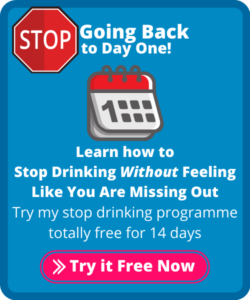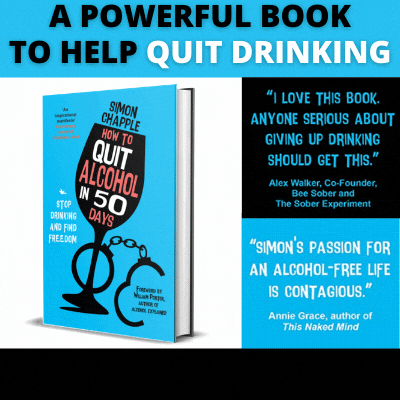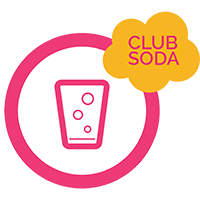Sober Support Tips – What NOT to say to someone with an addiction

I cannot stress how important it is for anyone battling an addiction to have a close and meaningful support network around them. This blog has been created to help anyone who knows or lives with someone who has an addiction. Whilst I am here to help support people with an addiction to alcohol, the tips in this post can help with any form of addiction, whether that’s an addiction to a substance such as alcohol or drugs through to an addiction to gambling, work or exercise.
I drank heavily for 2 decades and whilst I knew long before going sober that my relationship with alcohol had turned from one of enjoyment to an out of control addiction, it took me longer to actually change for good and live an alcohol-free life. The support I had from the people closest around me without a doubt really did help and still helps me now. Whilst you may at times feel like there is no way of helping someone with an addiction, there are some key things to avoid doing or saying, although it can be extremely difficult.
#1 Why don’t you just stop drinking
For someone who has never experienced an addiction themselves, it is impossible to be able to put yourself in the shoes of the addict. My biggest piece of advice is to understand that being addicted to alcohol is an illness. Whilst people often have control over taking the first drink, once that’s happened to someone with an addiction, it is impossible for them to stop without help and intervention.
I know this can be extremely upsetting and worrying to read, but using words such as the above can often exacerbate the problem. It can make the person with the addiction feel even further out of control and further in denial that they have any form of problem. It’s an unfortunate truth that addiction causes extreme health, relationship and financial problems, it can even lead to death. If someone could just stop, they would.
What to do instead
Unfortunately, it isn’t as simple as just being able to stop drinking. If it was, then people wouldn’t have an addiction that goes on to destroy lives. An addiction needs to be understood and treated as an illness where help and support is needed to assist the person with the addiction. I know that at times this will feel like an impossible task. You can’t force someone to stop drinking, what you can do is work with the person to help show them areas of support they can turn to and things you can do together. Trying to get the person to open up is key and understanding why they are drinking at the moment. Do you drink? If so, then now would be a great time to stop to help alleviate some of the temptation that is around the house. If you are able to support and help them find addiction treatment and something you can work on together, then this will greatly help you and the person with the addiction.
#2 You are not committed
Although frustrating, you need to understand that relapse can and will likely happen. Addiction recovery is not a straight line of success. There will be good days and bad. A set-back does not mean that all hope is lost and if the person with an addiction is trying to put themselves into recovery, then this alone is a fantastic sign of change. It could be a case where they are alcohol-free for a week, a month or even a year and then a relapse occurs. For you, I know it will be awful, upsetting and anger-inducing to see or suspect the person to be drinking again, but now is not the time to place blame and shame. People with an addiction can have feelings of embarrassment, shame or just complete denial. The problem can then be amplified if they are experiencing emotions of anger from you which can cause them to secret away their drinking.
What to do Instead
Again, it is about understanding that relapses and set-backs can happen and are a normal part of the recovery process. Having a journal can really help both you and the person with an addiction. Being able to document any positive progress made to this point is great to look back on to realise that change is possible and the steps that need to be taken to help get the person back into control where alcohol is not running the show.
#3 I’m so annoyed/let down by you now
Look, we’re all human and there is only so far that your own patience can go. When you see someone self-harming themselves through addiction and you know you can’t force them to quit, it can lead to strong emotive language to vent your own frustration out on that person. Unfortunately, this will likely only cause an increase in sustained addiction and whilst it may feel good for you to get off your chest how you are feeling right now, putting this on the person with the addiction will not do anything to help in the long-term.
Addiction has to be up there with one of the most frustrating illnesses for someone else to witness. All you see is the person drinking when you know this will lead to emotional and physical problems. However, it’s likely that the person drinking doesn’t want this to be the case but the addiction is firmly in-place.
What to do instead
To be a viable support partner for someone with an addiction you absolutely have to take care of yourself first to ensure that you are in the right mindset to be able to help and cope with the struggles that addiction presents. You will need to vent and my biggest piece of advice is to have a third party that you can go to, to talk openly without judgement. Whether that’s a family member, friend or a counsellor. Having someone to also support you is critical for both you and the person with the addiction.
I hope this post goes someway to helping you if you are living with or have someone close to you that has an addiction. I know you will want to be able to provide them with the best support possible, however, at times, this can feel like an impossible and unappreciated task. You are not alone and there is also a lot of support out there for you as well. Please do check out my free Facebook Support Community along with my YouTube Channel for lots more useful advice on addiction and support.
View this post on Instagram










